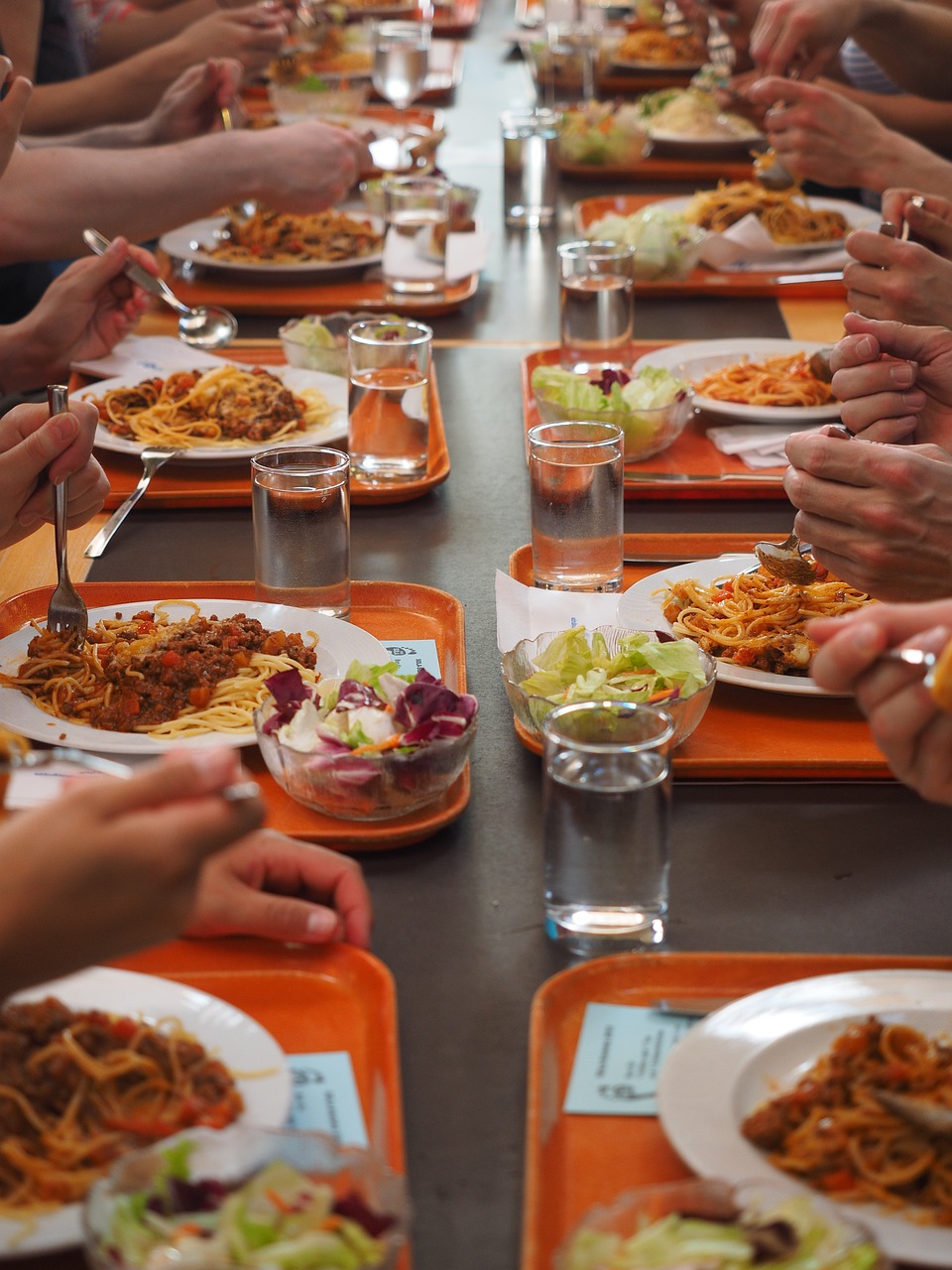For students affected by celiac disease, it is necessary to introduce at least one meal in canteens that would comply with the rules of a gluten-free diet they are obliged to follow.
"I often feel as if I am unintentionally, merely by circumstance, excluded from social gatherings. Lunch and dinner in the canteen serve as a break from lectures, a respite from studying, and an opportunity for relaxation and conversation with friends. In my case, it's quite different. My meals are somewhat monotonous, within four walls, prepared in silence as I wrap up the day with my thoughts. Having at least one meal in the canteen would make me feel like a part of the student community,“ says Jovana Batinic with a slightly trembling voice, while having dinner in her room 552 at "Studentski grad" in Belgrade. Jovana is a third-year student at the Faculty of Philology, diagnosed with celiac disease at 18 months old, a chronic condition that is triggered when an affected person consumes gluten-containing food.
In Belgrade, there is not a single meal adapted to the dietary needs of students with celiac disease in student canteen. Consequently, for those who choose to live in student dormitories, the conditions make their diet quite challenging.
"While celiac disease is increasingly discussed in Serbia, with the opening of gluten-free restaurants and bakeries, more attention should be given to student canteens. As someone who is studying and living in a student dorm, diet is a challenge for me. The preparation of each of my meals requires careful planning and more time, as I only have an induction plate and a small fridge in my room,“ says Batinic.
How can improper diet affect individuals with celiac disease?

Individuals with celiac disease are highly sensitive to gluten, meaning even the smallest amounts of this protein can cause serious health problems. When a person with celiac disease consumes gluten, an autoimmune response occurs that can lead to damage to the lining of the small intestine, digestive issues, nutritional deficiencies, and an increased risk of developing diabetes. Dr. Violeta Skrelja, a gastroenterologist at the Clinical Center of Serbia, believes that it is essential for individuals with celiac disease to follow a proper diet to maintain optimal health.
"We are aware that in Serbia, there is a very limited selection of gluten-free options that would meet the needs of students with celiac disease. The problem lies in the fact that gluten is present in almost all products, except for basic foods such as fruits, vegetables, unprocessed meat and milk,“ continues Dr. Skrelja. "A particular risk is the fact that gluten, found in grains such as wheat, rye, and barley, processed meats, certain dairy products, sweets, and snacks, can cause inflammation and damage to the intestines, creating additional challenges for those affected.“

There is no gluten-free food option in students' canteens in Belgrade
Due to insufficient commitment from the responsible authorities at the Student Center Belgrade, students with celiac disease are unable to have nutritionally rich meals daily, unless they provide them independently of the student services. Such a dietary approach entails higher financial costs, as gluten-free food itself is considerably more expensive than the regular one. Srdjan Jankovic, the assistant director for diet at the Student Center Belgrade, states that it is currently challenging to organize meals for students with celiac disease because the number of users who would opt for gluten-free meals is significantly smaller compared to the total number of users.
"The institution Student Center Belgrade primarily focuses on providing meals for healthy students. We strive to accommodate students with special needs at all times, but due to the small number of users who report having celiac disease, it is challenging to organize meals for them in any of our restaurants. Our capacities are currently quite limited; besides the high cost of gluten-free ingredients, especially flour, we also face challenges with an education staff,“ says Jankovic.
Across the United States, there are over 100 universities that provide daily gluten-free options for their students, prepared in double-checked conditions. However, Europe does not follow the American trend. Many products labeled as gluten-free may often contain traces of wheat flour, especially in Scandinavian countries, and gluten-free options are frequently lacking in student canteens. However, an exception is Italy, where there is a law - Legge Quadro sulla Celiachia (Law on Celiac Disease) which mandates that every student suffering from celiac disease must be provided a meal in the nearest canteen at the same price as any other meal.
Jankovic believes that comparing canteens in Serbia to those in the United States is not appropriate due to different dietary cultures. "It seems to me that in our region there is not enough awareness of the disease itself and the consequences it has for those who have it. Surely, the number of affected individuals is much higher in the U.S, so parallels cannot be drawn. I don't rule out the possibility of implementing gluten-free meals, but it is crucial for there to be greater collaboration and more effective communication between users and service providers to turn this idea into reality. Unfortunately, I don't think this will be the case in the near future,“ concludes Jankovic.
The Association of Serbia for Celiac Disease would support the initiative to introduce gluten-free meals
Eating outside the home is very risky for those with celiac disease, as there is no safe place - no certified kitchens guaranteeing gluten-free food. When preparing gluten-free meals, it is essential to adhere to specific conditions to avoid contamination during food preparation. Mirela Markovic, representing the Association of Serbia for Celiac Disease, believes that, even though the percentage of affected individuals is small, they should not be excluded from the services that other students receive.
"Students, especially those who should eat in student canteens as they come from different parts of Serbia, approach us with questions about what is truly safe for their diet and where they can obtain it during the days they spend in Belgrade. Because of all those who have contact as us, we would gladly support the initiative to introduce gluten-free meals because they too should have three nutritionally rich meals, just like students without this allergy,“ says Mirela Markovic, a member of the association.
Markovic adds that the implementation of gluten-free options in student canteens would require a separate space and equipment to avoid food contamination, along with additional financial resources for realization. Additionally, the engagement of skilled chefs with knowledge of the specifics of a gluten-free diet would be necessary to ensure the provision of quality meals tailored to the needs of students.
"We regularly present our ideas as an association, but it seems that the authorities are not as interested. We need to reach someone willing to listen to us. There are solutions, and as an association, we are always available, eager to discuss and exchange ideas. However, there also needs to be good will on the part of the authorities responsible for student canteens,“ concludes Markovic.
Sidebar: When students submit a request for the issuance of their chip card, which allows them to use canteens and dormitory services, they fill out a section that includes special needs. In this section, they indicate whether they suffer from celiac disease, diabetes, Crohn's disease, or any other condition. This way, the Student Center Belgrade has insight into the exact number of individuals whose diet requires specially tailored meals.
Author: Teodora Ćosić
Mentor: Assistant professor Marko Nedeljković, Department of Journalism and Communication Studies, Faculty of Political Sciences - University of Belgrade









